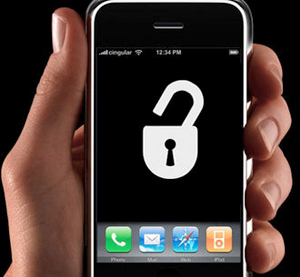
Since its introduction two months ago, the government's copyright reform package has generated widespread debate over whether it strikes the right balance. The digital lock provisions have been the most contentious aspect of the bill, with critics fearing that anytime a digital lock is used, it would trump virtually all other rights.
Supporters of the C-32 digital lock approach have sought to counter the criticism by arguing that the Canadian provisions simply mirror those found in other countries such as the United States. Yet last week, the U.S. introduced changes to its digital lock rules that leave Canada with one of the most restrictive approaches in the world.
The U.S. rules are found in the Digital Millennium Copyright Act (DMCA), which features a triennial review process that allows the U.S. Copyright Office and Librarian of Congress to mitigate the danger the law poses to legitimate, non-infringing uses of copyrighted materials by identifying new exceptions.
The latest review concluded last week with the introduction of new exceptions that target popular consumer products such as DVDs, smartphones, and e-books. The exceptions -- which make it legal to circumvent the locks -- are narrow in scope, but they provide U.S. consumers with far more rights than those found in Bill C-32.
The media focused primarily on the smartphone exception, which is tailor-made to address the locks found on the popular Apple iPhone. Three years ago, the U.S. established a specific exception to allow consumers to legally unlock their cellphones so they could keep their phones when switching providers. Last week, it extended the exception even further, granting consumers the right to "jailbreak" their phones. That move allows consumers to install applications of their choice without requiring Apple's prior approval.
The Canadian rules on cellphones and digital locks pale by comparison. While the inclusion of an exception for unlocking a phone was promoted as an illustration of a pro-consumer element of C-32, there is no equivalent to the U.S. rule for jailbreaking phones in Canada.
Three ways we're worse off than Americans
More noteworthy were a trio of exceptions involving circumventing the locks on DVDs. The first establishes an exception to circumvent DVD protection to gather a short clip for educational purposes. The Canadian government has promoted the benefits of C-32 to the education community (the bill includes a broad new fair-dealing exception for education), yet teachers or students engaging in the same conduct would violate the law in Canada under C-32.
The second permits documentary filmmakers to circumvent DVD protections to gather a short clip. There is no similar exception found in the Canadian bill, which has led the Documentary Organization of Canada to conclude that C-32 puts "documentarists in an untenable situation," since they will not be able to use as source material any content behind a digital lock.
The third grants a specific exception to anyone circumventing DVD protection to collect clips for non-commercial videos. The Canadian government has touted its "YouTube" user-generated content remix exception as an example of forward-looking elements in the bill that grants Canadians the right to create remixed work for non-commercial purposes under certain circumstances. However, unlike in the U.S., those new rights are lost once the desired content is placed under a digital lock.
Finally, the U.S. rules also contain an exception for e-books designed to facilitate access for the sight-impaired. The Canadian rules do not contain a similar exception.
Given the restrictions on distributing circumvention tools, contractual restrictions, and the absence of a general right to circumvent for lawful purposes, the U.S. exceptions are hardly a panacea. Yet when compared to Bill C-32, they will leave Canadian consumers wondering why the government has proposed a bill with digital lock rules far more restrictive than those found in the U.S. ![]()
Read more: Science + Tech















Tyee Commenting Guidelines
Comments that violate guidelines risk being deleted, and violations may result in a temporary or permanent user ban. Maintain the spirit of good conversation to stay in the discussion.
*Please note The Tyee is not a forum for spreading misinformation about COVID-19, denying its existence or minimizing its risk to public health.
Do:
Do not: